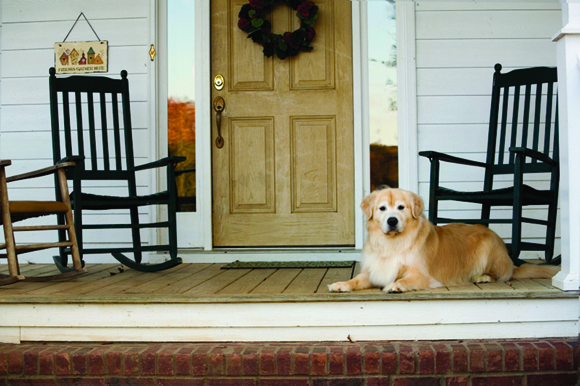Seek The Comfort Of A Pet Trust
Published Tuesday, August 30, 2016 at: 7:00 AM EDT
Is your pet practically a member of the family? If so, you're certainly not alone, as many pet owners would go to extreme lengths to protect the well-being of their animal companions. In fact, you might even want to spell out plans to care for Fido or Tabby in a legally binding document, especially if you're fearful that your pet will live longer than you do.
"Pet trusts" have been around for years, but their popularity has been rising recently. In 2016, Minnesota became the last state in the nation to approve such arrangements. Now a pet trust can be established with legal authority anywhere in the United States.
As the name implies, a pet trust is a legally sanctioned arrangement that provides for the care and maintenance of one or more companion animals. Typically, the pet owner—called either the "grantor" or "settlor"—sets up the trust and designates a trustee to hold assets for the benefit of the pet. The trustee makes payments out of the trust funds as needed.
 Depending on state law, a pet trust may last as long as 21 years or until the death of the pet, whichever comes first. In some states, the trust may continue even longer than 21 years.
Depending on state law, a pet trust may last as long as 21 years or until the death of the pet, whichever comes first. In some states, the trust may continue even longer than 21 years.
The trust may provide specific instructions regarding the care of the pet that the trustee will be required to carry out. For example, if you own a cat that prefers a certain brand of food or your dog enjoys regular romps in the park, those particulars may be included in the trust. You also can impose requirements for regular visits to a vet.
Just like a trust for an elderly person, a pet trust may provide instructions for care in case the animal becomes ill or otherwise incapacitated. You know your pet better than anyone else, so describe the type and length of care your pet should receive.
Besides designating a trustee, as well as a successor and contingent trustee, you should identify your pet to avoid any potential fraud problems; detail your pet's standard of living and care; determine the amount of funds needed for your pet's care; designate a remainder beneficiary in the event the funds in the pet trust aren't exhausted upon the pet's death; require periodic "inspections" by the trustee to ensure that the pet is being properly taken care of; and list instructions for the pet's burial or other disposition.
Best of all, a pet trust offers its owner peace of mind. Instead of leaving matters to chance, you will know that your long-time companion will be cared for until the end of its life.
This article was written by a professional financial journalist for Preferred NY Financial Group,LLC and is not intended as legal or investment advice.
An individual retirement account (IRA) allows individuals to direct pretax incom, up to specific annual limits, toward retirements that can grow tax-deferred (no capital gains or dividend income is taxed). Individual taxpayers are allowed to contribute 100% of compensation up to a specified maximum dollar amount to their Tranditional IRA. Contributions to the Tranditional IRA may be tax-deductible depending on the taxpayer's income, tax-filling status and other factors. Taxed must be paid upon withdrawal of any deducted contributions plus earnings and on the earnings from your non-deducted contributions. Prior to age 59%, distributions may be taken for certain reasons without incurring a 10 percent penalty on earnings. None of the information in this document should be considered tax or legal advice. Please consult with your legal or tax advisor for more information concerning your individual situation.
Contributions to a Roth IRA are not tax deductible and these is no mandatory distribution age. All earnings and principal are tax free if rules and regulations are followed. Eligibility for a Roth account depends on income. Principal contributions can be withdrawn any time without penalty (subject to some minimal conditions).
© 2024 Advisor Products Inc. All Rights Reserved.
